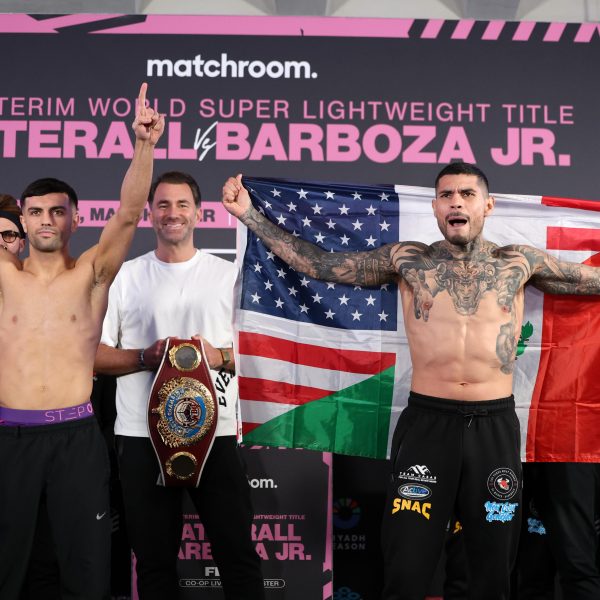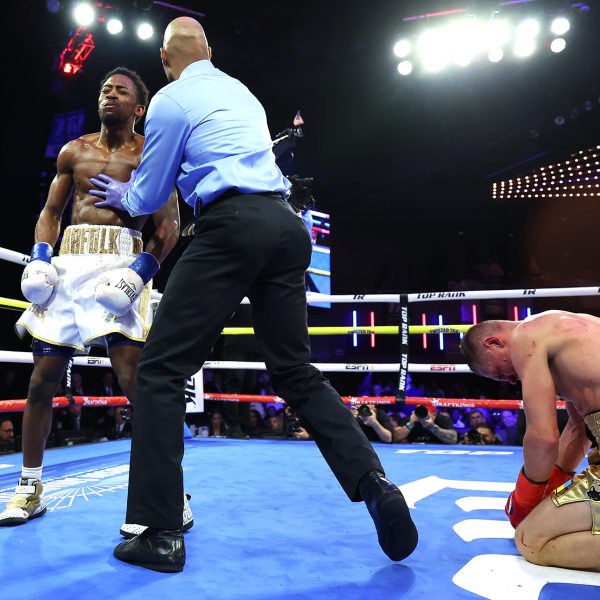By Amelia Hill
Kelvin Bilal Fawaz, an amateur boxing champion who has fought in the England vest six times, has been arrested and locked in an immigration detention centre without crucial mental health medication.
The 31-year-old, who has been in the UK for 17 years since he was brought from his home in Nigeria as a child, abandoned and forced into domestic slavery, was arrested without warning on Tuesday when he attended the Becket House reporting centre in central London.
He said he had been told his arrest was pending an interview with the Nigerian high commission on Thursday: a country which has already said it will not accept Fawaz because he is not a citizen.
“I don’t understand why they had to arrest me,” he told the Guardian from Brook House immigration removal centre in Crawley, West Sussex.
“I’ve never broken a single condition put on me by the Home Office. If they’d told me to attend an interview with the Nigerian high commission, I would have done. But they didn’t tell me or my lawyer: they just arrested me without warning.
“I’m just so depressed and – without the medication I have been on for depression since 2013 – I’m terrified what will happen to me tonight.
“I need this medication because my mental health has suffered because of how the Home Office is wrecking my life. Without it, I hurt myself. I spiral downwards and out of control.”
Fawaz’s case hit the headlines in December 2017 when he was arrested for the first time.
The boxer has been trying to establish his nationality since the period of discretionary leave he was granted as a child expired when he turned 18. He has repeatedly written to the high commissions in Nigeria as well as to commissions in the birthplaces of his parents – Lebanon and Benin, which borders Nigeria.
However, the Home Office has rejected evidence collected by Fawaz and has repeatedly delayed taking key decisions: it took four years to rule on an application he made in 2006 and another four to rule on an appeal he made in 2010.
In 2012, Fawaz married his partner of six years, a British citizen. He applied for a spousal visa but the Home Office declared the marriage void because he had married while his immigration status was insecure.
Although unable to do paid work without a visa, Fawaz was able to build up an amateur boxing career thanks to the Stonebridge Boxing Club in north London. Although he has represented England at the amateur level, the Home Office refused to let him represent Great Britain in the Olympics.
Some of the biggest names in boxing have repeatedly appealed to the Home Office on Fawaz’s behalf. Frank Warren, the English boxing manager and promoter, wrote to the Home Office in 2014 praising Fawaz’s “exceptional talent” and offering him a three-year contract during which he guaranteed he would “comfortably gross” at least £230,000.
Promoter and former boxing world champion Barry McGuigan said: “Kelvin has the capacity to go far: he’s already brought glory to England many times and could go even further for this country if he was allowed by the Home Office. Kelvin’s got a great personality. He ticks all the boxes.”
Fawaz has never been to prison. In his late teens and early 20s, he received convictions for minor offences such as cannabis possession, driving without insurance and spraying graffiti. Fawaz points out that he has never received a harsher sentence than community service, and argues that he is a reformed character.
A Home Office spokesperson said: “The Home Office has a duty to protect the public by removing those who commit criminal offences.”
Article courtesy of Amelia Hill & The Guardian









Recent Comments